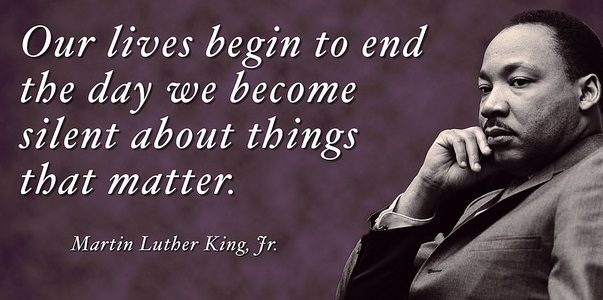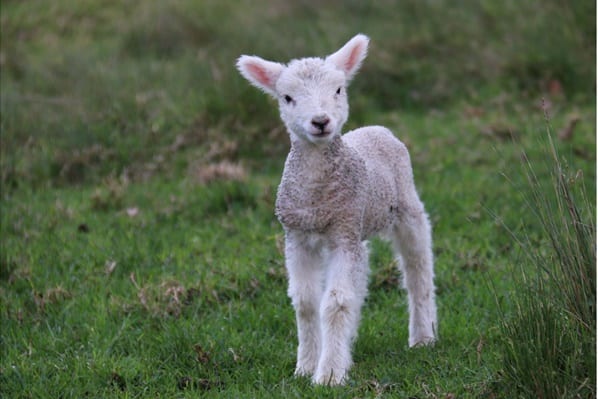
In 1955, Martin Luther King found himself as the leader of the Montgomery Bus Boycott, a movement that would start a revolution in the United States.
Rosa Parks ignited the Civil Rights movement when stood up to the segregation laws of Jim Crow that demonized black people and forced them to live in conditions there were inferior to white people. Parks was arrested after she claimed her inherent dignity by refusing to move to the back of a bus. Just a few days after her arrest, King, who had recently moved to Montgomery, was elected to be the leader of the Montgomery Bus Boycott.
For weeks after his election, King received threatening phone calls from anonymous voices. The phone rang throughout the night and as King picked it up he heard voices saying things like, “Listen, nigger, we’ve taken all we want from you; before next week you’ll be sorry you ever came to Montgomery!” (The Autobiography of Martin Luther King, Jr., 77.)
They were only threats, until one night. King was away from his home at a meeting for the boycott. His wife Coretta and their newborn baby girl were home. At about 9:30 pm Coretta heard a loud explosion that rocked their house. It was a bomb.
Word of the bombing reached the meeting. King saw people whispering secrets, as if they were trying to keep something from him. He went to three of his best friends and urged them to tell him what happened. His closest ally delivered the tragic news, “Your house has been bombed.”
The threats of violence suddenly became very real to King and his family. And he would deal with those threats throughout his life. He instructed those at the meeting to stay calm, go straight home, and adhere to their philosophy of nonviolence as they sought justice in the face of systemic racism.
King rushed to his house and found Coretta and their baby uninjured. Coretta was remarkably calm, all the more remarkable because the police commissioner, the mayor, and many white reporters had already made their way into King’s dining room. And a crowd already formed outside of their house to support the Kings and protest the bombing. Police were also in their yard, attempting to disperse the crowd, which, in turn, had begun to threaten the police with violence.
King knew that his love for nonviolence as a means to seek justice was at stake. He walked outside to his porch and calmed down the crowd. Then he delivered one of his many powerful impromptu speeches, saying to the crowd,
We believe in law and order. Don’t get panicky … Don’t get your weapons. He who lives by the sword will perish by the sword. Remember that’s what God said. We are not advocating violence … I want you to love our enemies. Be good to them. Love them and let them know you love them.
I did not start this boycott. I was asked by you to serve as your spokesman. I want it known the length and breadth of this land that if I am stopped this movement will not stop. … For what we are doing is right. What we are doing is just. And God is with us. (Autobiography, 80.)
This scene from Martin Luther King’s life tells us so much about the man. In the face of violent injustice, this great American hero set forth a vision of justice and love that was radical for his day, and his vision remains radical in ours.
King taught us that Justice and love go together. We often think that these two concepts are opposed to one another. That there’s a tension between justice and love. Love is nice, so this thought goes, but there are times when we need justice. Here, justice is seen as a form of punishment, as in a penal justice system.
This idea also affects our understanding of God. For instance, there’s an idea out there that there is a tension between the love and justice of God. My friend Michael Hardin says that if God is tense, then God should see a therapist.
But Martin Luther King resolved that tension. For him, God’s justice, true justice, didn’t mean punishing enemies. Rather, justice for him as he followed Jesus, was about reconciliation. Today we call it “restorative justice.” It’s a justice that restores individuals to themselves and it restores our relationships with one another. King wanted the persecuted and the persecutor to find healing. When we live into this justice that seeks restoration, healing, and reconciliation, King said that we live into the “Beloved Community.”
King also changed our understanding of love. For King, love wasn’t primarily an emotion. It wasn’t based on positive or romantic feelings for another. This isn’t a Valentine’s Day love. Rather, love is an action. Love is a verb. Love is a doing. Love refuses to imitate the hatred of our enemies, but shows the world an alternative way of being. When we live into that alternative, we know that we are living into a just love, what King called the Beloved Community.
I don’t know about you, but this form of justice and love is not easy for me to live into. And it wasn’t easy for Martin Luther King, either. He challenged America’s original sin of racism and when he did that the powers and principalities fought back. That’s because the violent oppression of racism was embedded in our nation from the beginning.
Fortunately, slavery ended in 1863 with the Emancipation Proclamation. But unfortunately, the abolition of slavery didn’t abolish the sin of racism that continues to infect the United States with unjust social policies against African Americans.
In her book, The New Jim Crow, Michelle Alexander explains the pattern of racist structures that are still alive in our country. That pattern looks like this: we started with slavery, then moved to the segregation of Jim Crow, and now we have the New Jim Crow of mass incarceration.
The War on Drugs, started by Ronald Regan, targets African American men. Millions of black people have been incarcerated for nonviolent drug crimes that many of them didn’t even commit. Once imprisoned, they become felons and, like the old Jim Crow laws, are denied basic civil and human rights.
The racism of mass incarceration is made more obvious by the fact that white people sell and use drugs at a higher rate than black people. And yet it is African Americans who suffer the unjust effects of mass incarceration. As the Huffington Post explains, “White America does the crime, black America does the time.”
Why? Michelle Alexander says it’s because of a political system that pits police against African Americans. When Regan waged the War on Drugs, drug use was actually on the decline in the United States. Police didn’t want to fight a War on Drugs because drug use wasn’t a major problem and was actually a distraction from more violent crimes.
But Regan was determined, so he provided financial incentives for police departments to arrest drug offenders. The federal government payed police departments for every drug arrest the police would make, but “Non-drug-related policing brought no federal dollars, not even for violent crimes.” (New Jim Crow, 77). Regan got his drug war, and every president since has continued the demonic War on Drugs. The police aren’t bad in this scenario; they are caught up in an evil system, in the powers and principalities of the world that need to be transformed in the name of justice.
Why the emphasis on African Americans? Because they don’t have a defender. Tragically, that’s what continues to make African Americans easy scapegoats in the American social system. Imagine if millions of white people were incarcerated at the same rate as black people for nonviolent drug crimes that they may not have even committed. Because white people have social power, the white community wouldn’t stand for it. But the black community, which has been marginalized, disenfranchised, and demonized from the very beginning of American history, doesn’t have that kind of power.
Now, it’s easy for white people of good will to start feeling guilty or powerless or fall into denial when it comes to the massive racist systems of the United States. But those feelings aren’t helpful. What is helpful is to find ways to work for justice.
There is hope because there are things we can do. Stand up against the powers and principalities that lead to oppression. Name the forces of evil, including the War on Drugs and the prison industrial complex. Seek friendships with our African American brothers and sisters as we share our lives together and walk hand in hand, seeking a more just America. Listen to their stories without becoming defensive when we hear the truth about racism. Read African American authors, particularly Alexander’s “The New Jim Crow” and James Cone’s book “The Cross and the Lynching Tree.”
We can stop racist jokes and comments when we hear them. We can keep talking about how racism infects our culture, especially as we continue in this presidential campaign that has been charged with racism against African Americans, Latinos, and Muslims. We can confront gentrification and redistricting that benefits white people and pushes black people further to the margins of American society. We can participate in political campaigns and vote in ways that confront racist policies of our past and of our present. We can claim that black lives matter because for too much of our history we’ve claimed that black lives don’t matter.
And in all of these things that we can do, let us work together to follow in the spirit of Christ that breaks down the hostile barriers that divide us against one another. And let us heal that divide with the bridge of love and justice that is called the Kingdom of God, what Martin Luther King called the Beloved Community.
Stay in the loop! Like Teaching Nonviolent Atonement on Facebook!











